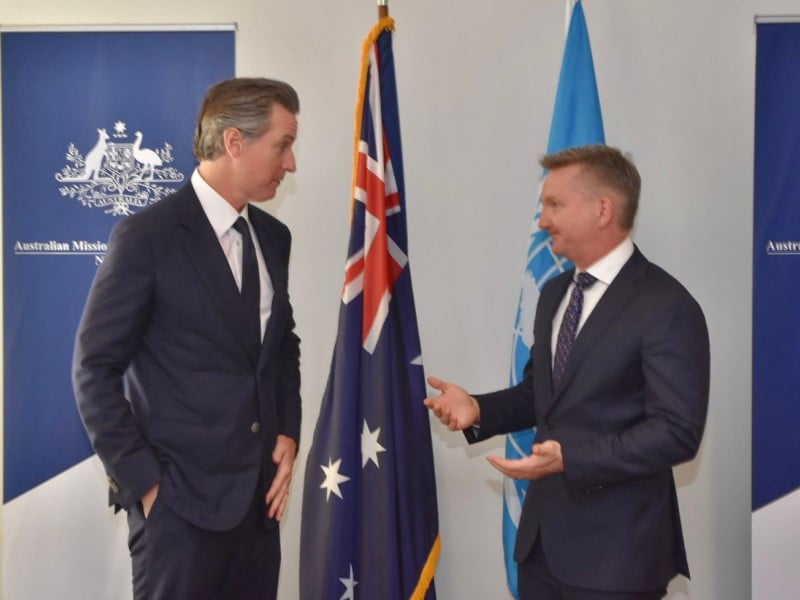Australia has signed a new agreement with the US state of California to advance clean energy technology development and collaboration.
The memorandum of understanding, signed on Wednesday, creates a framework for cooperation on innovative measures to tackle climate change and develop ecosystem protections.
Clean transportation, clean energy supply chains and technologies, and the circular economy, are among the areas of focus, with specific projects to be developed in consultation with industry and academia.
The partnership seeks to leverage the state’s “ability to set standards for new and emerging technologies”, according to a joint press release by Climate Change and Energy minister Chris Bowen and Foreign Affairs minister Penny Wong.
California has the largest economy in the United States and the largest sub-national economy in the world and is home to Silicon Valley.

Mr Bowen told ABC Radio National that the agreement has been in the works since he met Californian governor Gavin Newsom last September.
In particular, he flagged solar panels and electric vehicles as presenting opportunities for cooperation, describing California’s electric vehicle policy as “very advanced”.
Funding for the collaboration will come out of the Department of Climate Change, Energy, Environment, and Water’s existing budget for international engagement.
Foreign minister Penny Wong said the agreement would “accelerate our shared efforts to mitigate and adapt to climate change, including by promoting climate-related disaster resilience and supporting the development of clean energy technologies”.
The agreement with the Californian government builds on the Climate, Critical Minerals and Clean Energy Transformation Compact signed between Prime Minister Anthony Albanese and US President Joe Biden in May.
This included a commitment from President Joe Biden to propose to the US Congress that Australia be included as a domestic source under the US Defence Production Act, which could give Australian firms access to US funding set aside for industries critical to security.
The Compact also seeks to explore opportunities for Australia-based firms to benefit from the Inflation Reduction Act, which includes US$369 billion worth of support for clean energy and renewable technology manufacturing and other activities.
There have been ongoing fears from industry that the Inflation Reduction Act would draw capital away from investing in green hydrogen and other clean technology projects in Australia.
Last December, the Department called on the US government to explain “if any, steps the US may take to minimise the risk of its [Inflation Reduction Act] incentives causing distortion in the global hydrogen market” in a submission to consultation on the Inflation Reduction Act.
Speaking to ABC Radio National, Mr Bowen described the $2 billion Hydrogen Headstart production credit program as an “early down payment, a deposit, on our broader Inflation Reduction Act response”, with the government expected to have “more to say later in the year”.
Mr Bowen also suggested that the consideration of the feasibility of implementing a carbon border adjustment mechanism would look at its applicability to aluminium alongside cement and steel.
“We want to see emissions come down. We want to see those strategic industries grow. We need more steel and aluminium and cement for this massive transformation, renewable energy transformation, and we want to see that continuing to be made in Australia,” he said.
The federal government has signed several low emissions technology partnerships with other countries, including Germany, Singapore, Japan, South Korea, India, and the United Kingdom. A $20 million green innovation grants program between Singapore-Australia is expected to open later this year.
Do you know more? Contact James Riley via Email.

